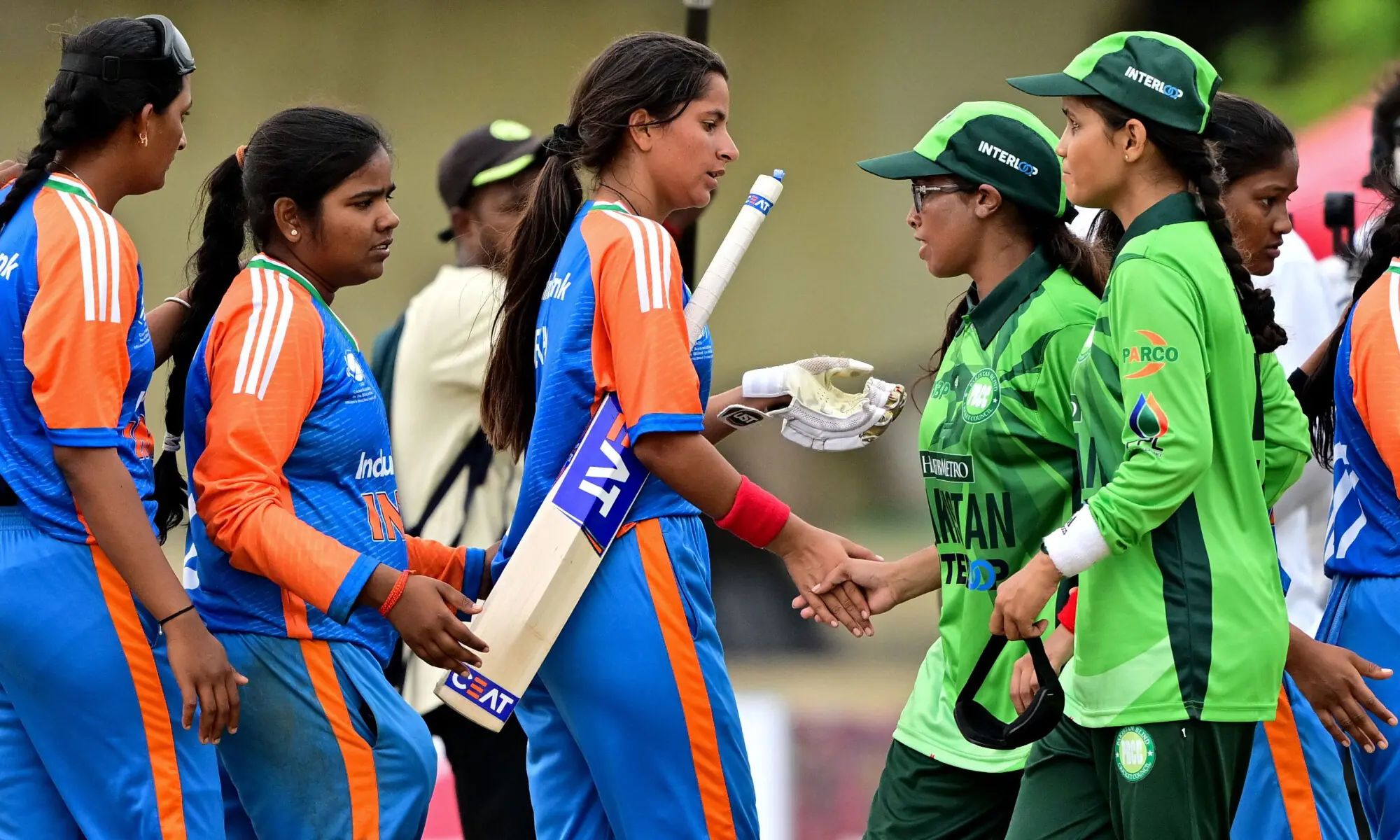In a heart-warming display of unity and sportsmanship, blind women cricketers from India and Pakistan shook hands and exchanged warm compliments after their T20 World Cup match on Sunday in Sri Lanka — brushing aside the political hostility that has long overshadowed cricket between the two nations.
Competing at the BOI Cricket Stadium in Katunayake, the players demonstrated that the spirit of cricket remains stronger than political tensions. This tournament, described as the world’s first-ever Blind Women’s T20 World Cup, provided a rare moment of camaraderie at a time when relations between the two countries’ regular men’s and women’s teams have been strained.
India secured an eight-wicket win, chasing Pakistan’s 135/8 in just 10.2 overs. Yet the real victory belonged to the spirit of the game: despite expectations that the blind teams would mimic the hostility shown by their sighted counterparts, both sides greeted each other warmly at the end of the match. Players from both countries travelled to the venue together on the same bus, and team captains Nimra Rafique (Pakistan) and T.C. Deepika (India) congratulated each other generously.
Though the match had few spectators in person, it was broadcast live on Sri Lanka’s national network and streamed online, capturing global attention for its symbolic significance.
Team officials highlighted how the tournament is opening doors for visually impaired girls across South Asia. Indian team manager Shika Shetty called the championship “one of the biggest opportunities” for blind women, inspiring more girls with disabilities to pursue sports and education. Pakistan coach Tahir Mehmood Butt echoed the sentiment, noting the rise of new talent as blind cricket expands for women.
Blind cricket rules differ from traditional cricket: players rely primarily on sound to locate a special ball filled with ball bearings, and teams must include a mix of completely blind, low-vision and partially sighted athletes. The game emphasizes hearing, coordination and teamwork.
Teams from Australia, Nepal, Sri Lanka, and the United States are also competing in the World Cup, which began in India before moving to Sri Lanka for the final stages. Colombo will host the grand final next Sunday.
In a time of political strain and sporting boycotts, the India–Pakistan blind women’s match stood out as a powerful reminder of how sport can break barriers, build trust, and unite people — even when sight is limited, but vision is not.

